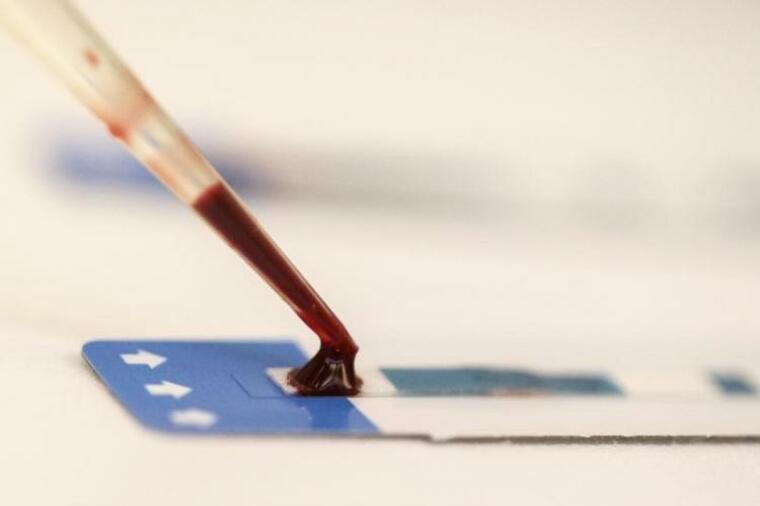HIV/AIDS cure news: Interferon production may accelerate the spread of HIV infection, studies show

The human immunodeficiency virus (HIV) is considered to be one of the most destructive pandemics in history, having ended the lives of about 34 million people since 1984.
And with an estimated 35 million people across the world currently living with this type of vicious and deadly virus, researchers are more hard-pressed than ever to discover the most effective treatment and defense against it.
However, despite the efforts of world organizations to spread awareness about HIV and the acquired immune deficiency syndrome (AIDS) it can eventually lead to, the number of infected people continues to rise. There is still no definitive cure for the virus, but research and studies through the years have found some positive progress toward developing the most efficient way to combat HIV/AIDS.
A team of researchers based in University of California, Los Angeles (UCLA) have reportedly discovered that temporarily blocking a particular type of protein in animal subjects known as the type I interferon could effectively restore immune functions, thereby speeding up viral suppression brought about by anti-viral drugs.
However, the researchers were quick to note that this study was not actually aimed at finding cure for HIV/AIDS. Rather, it was meant to disprove the popular belief that the more interferon at work, the better. It turns out that the type of interferon that the human body produces at chronic stages of HIV infection may actually have the opposite effect of accelerating the effects of the disease. By effectively blocking its production, HIV-infected people may be given a better chance of fighting off disease.
In other news, an experimental treatment regimen that was first tested on monkey and was later tried on humans has reportedly shown favorable results. The treatment regimen included a combination of the standard Antiretroviral Therapy (ART) and an experimental antibody that had similar effects as the Takeda Pharmaceutical Entyviro, which is an approved medicine for Crohn and ulcerative colitis diseases in 50 countries. This combination has been observed "to put the virus into sustained remission" in monkeys and has also been noted to bring about quite the same result in humans.
Further studies need to be conducted to make sure that the treatment is safe to use and does not bring about any detrimental side effects in HIV-infected humans.
 Christians don't have to affirm transgenderism, but they can’t express that view at work: tribunal
Christians don't have to affirm transgenderism, but they can’t express that view at work: tribunal Archaeology discovery: Medieval Christian prayer beads found on Holy Island
Archaeology discovery: Medieval Christian prayer beads found on Holy Island Presbyterian Church in America votes to leave National Association of Evangelicals
Presbyterian Church in America votes to leave National Association of Evangelicals Over 50 killed in 'vile and satanic' attack at Nigerian church on Pentecost Sunday
Over 50 killed in 'vile and satanic' attack at Nigerian church on Pentecost Sunday Ukrainian Orthodox Church severs ties with Moscow over Patriarch Kirill's support for Putin's war
Ukrainian Orthodox Church severs ties with Moscow over Patriarch Kirill's support for Putin's war Islamic State kills 20 Nigerian Christians as revenge for US airstrike
Islamic State kills 20 Nigerian Christians as revenge for US airstrike Man who served 33 years in prison for murder leads inmates to Christ
Man who served 33 years in prison for murder leads inmates to Christ


 Nigerian student beaten to death, body burned over ‘blasphemous’ WhatsApp message
Nigerian student beaten to death, body burned over ‘blasphemous’ WhatsApp message 'A new low': World reacts after Hong Kong arrests 90-year-old Cardinal Joseph Zen
'A new low': World reacts after Hong Kong arrests 90-year-old Cardinal Joseph Zen Iran sentences Christian man to 10 years in prison for hosting house church worship gathering
Iran sentences Christian man to 10 years in prison for hosting house church worship gathering French Guyana: Pastor shot dead, church set on fire after meeting delegation of Evangelicals
French Guyana: Pastor shot dead, church set on fire after meeting delegation of Evangelicals ‘Talking Jesus’ report finds only 6% of UK adults identify as practicing Christians
‘Talking Jesus’ report finds only 6% of UK adults identify as practicing Christians Mission Eurasia ministry center blown up in Ukraine, hundreds of Bibles destroyed: 'God will provide'
Mission Eurasia ministry center blown up in Ukraine, hundreds of Bibles destroyed: 'God will provide' Church holds service for first time after ISIS desecrated it 8 years ago
Church holds service for first time after ISIS desecrated it 8 years ago Burger King apologizes for 'offensive campaign' using Jesus' words at the Last Supper
Burger King apologizes for 'offensive campaign' using Jesus' words at the Last Supper Uganda: Muslims abduct teacher, burn him inside mosque for praying in Christ’s name
Uganda: Muslims abduct teacher, burn him inside mosque for praying in Christ’s name